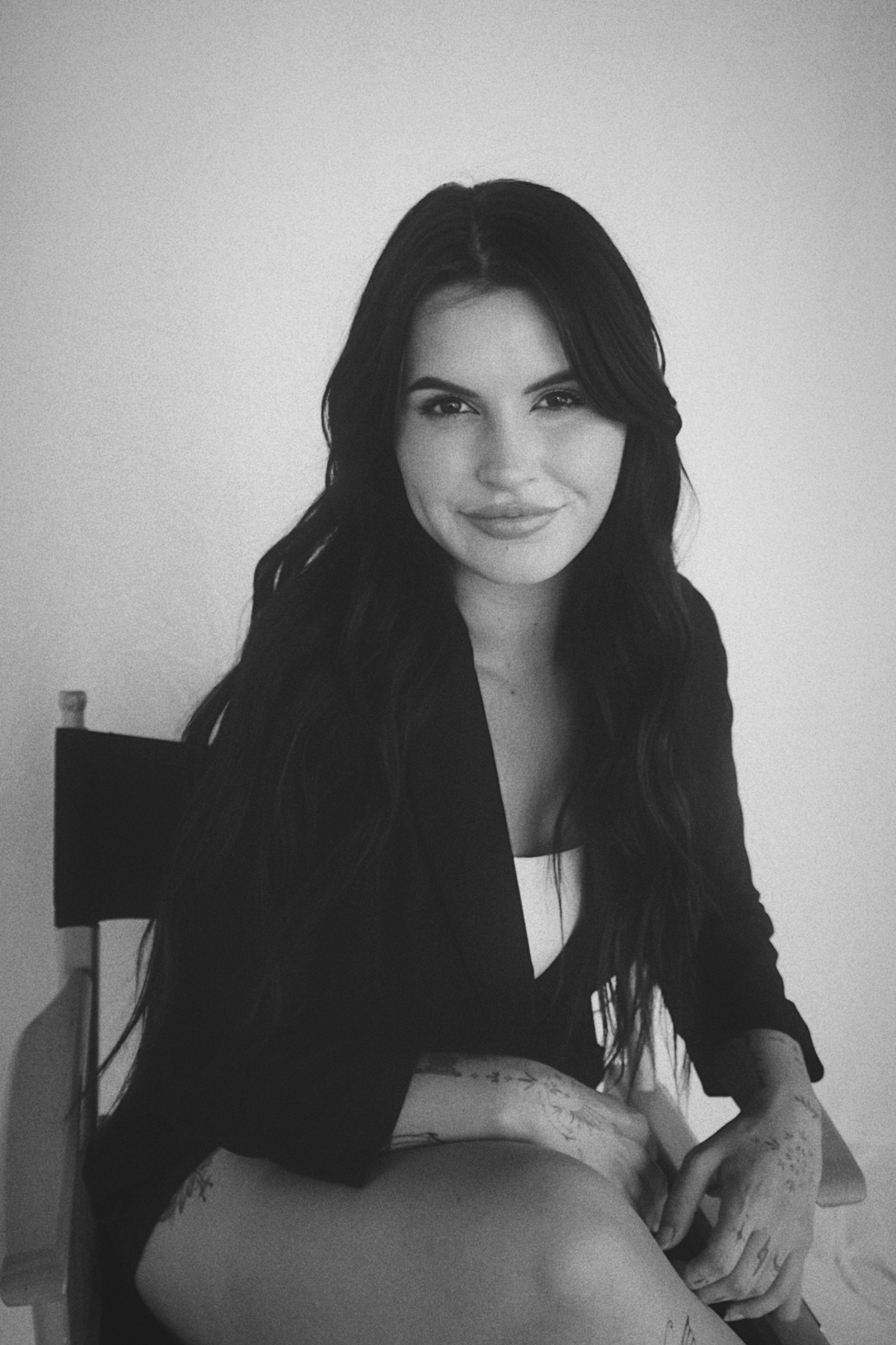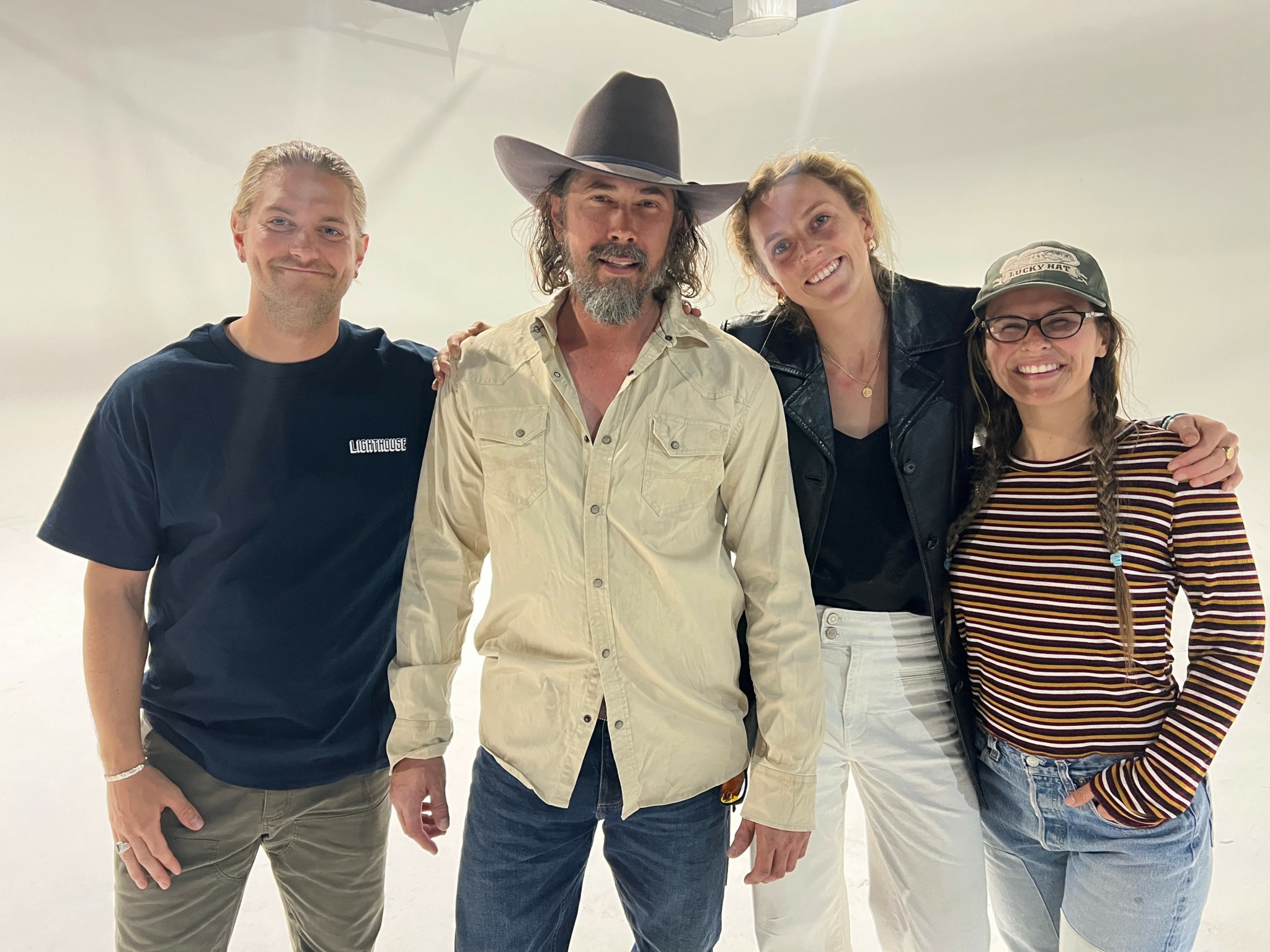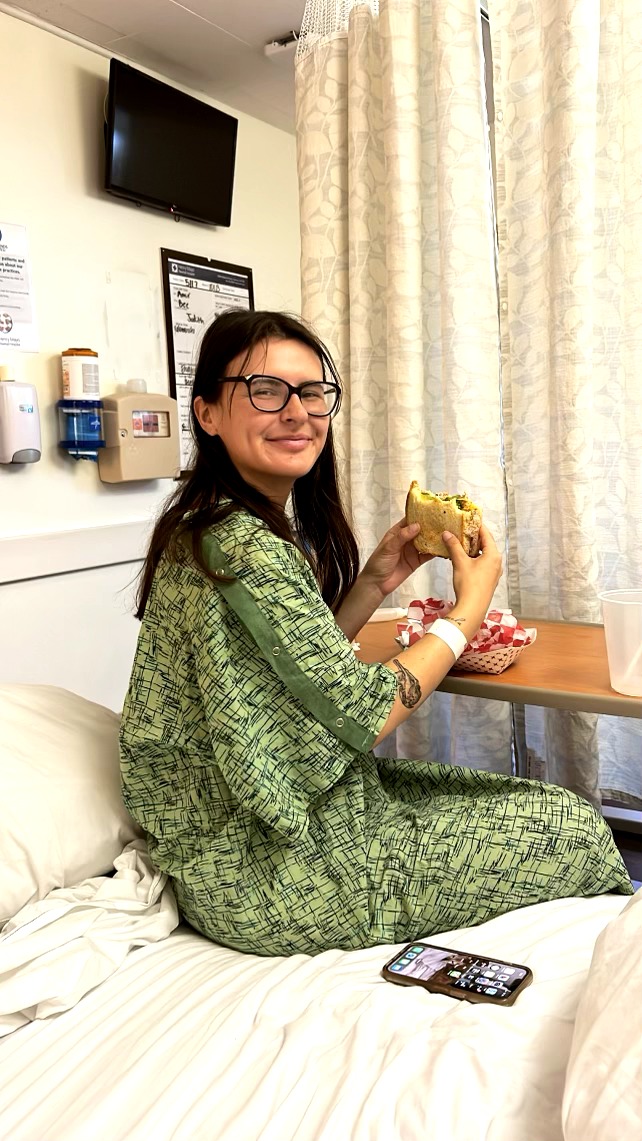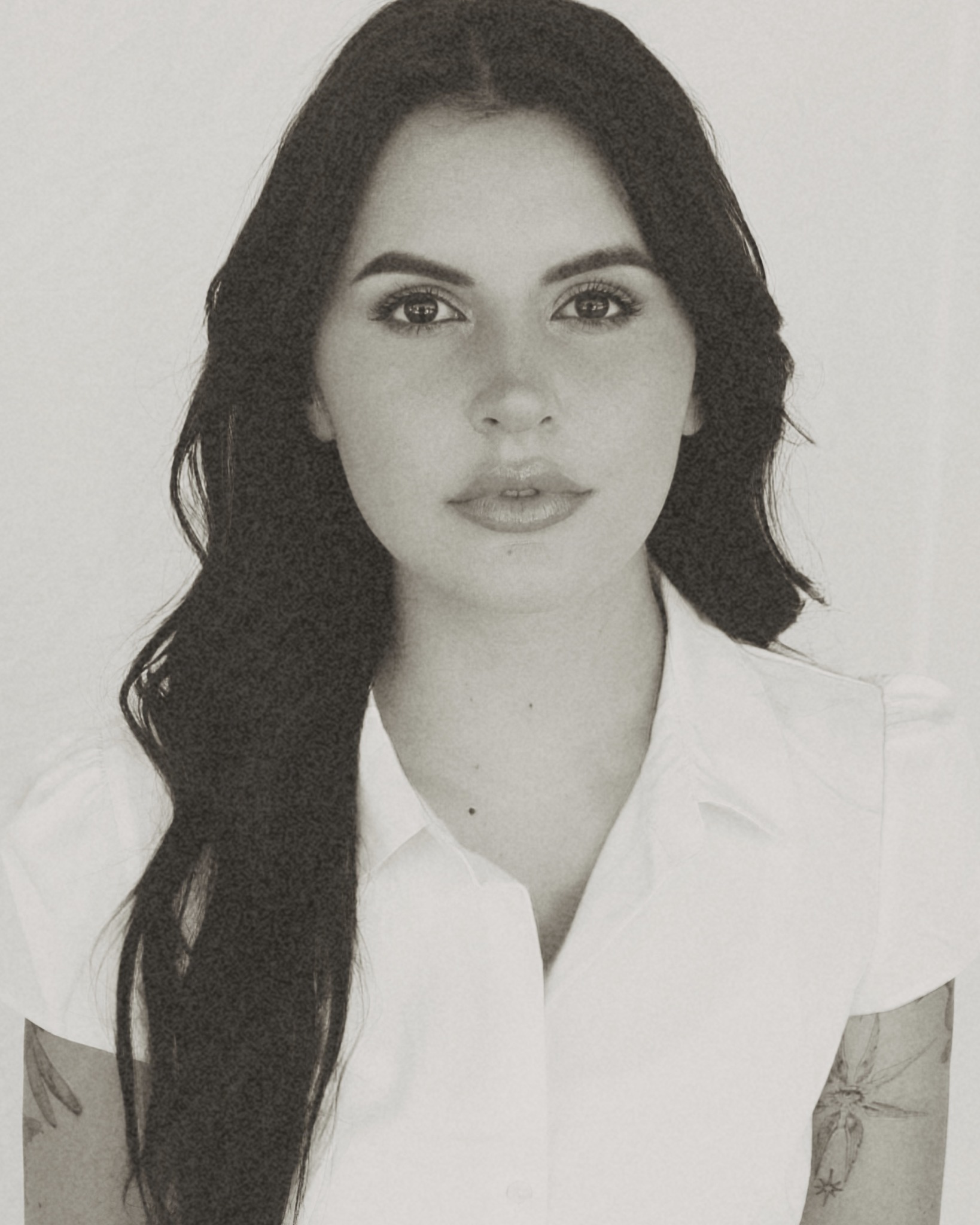We were lucky to catch up with Lesette Maxwell recently and have shared our conversation below.
Lesette, thanks for joining us, excited to have you contributing your stories and insights. Can you talk to us about how you learned to do what you do?
When I was in my first year of college and had to actually ask myself what I wanted to do, or what I enjoyed doing when I no longer had a familiar social life to try to fit into, I returned home to the idea of screenwriting. It felt so obvious. It was everything I loved as a kid, but I lost sight of it as a teenager. So by the time I was in college, I had no idea what I wanted to say, or how I wanted to say it.
That’s what led me to acting. I figured that the more I read other scripts and broke down characters from someone else’s work, then that would help me filter through what I think is good writing, and what recurring conventions existed in screenplays I found to be powerful or lovely.
I also went and found screenplays from movies and shows that I enjoyed watching. Studying how much or how little information those writers chose to give, and when to give it, in order to create different reactions was a really valuable way to learn.
In other words, to be a good writer, I needed to read. And I needed to read a lot.
And then, I needed to write. And I needed to write as much as I could. And I needed to make mistakes, or write mediocre scripts, in order to learn how to get better.
“The first draft doesn’t have to be perfect, it just has to exist.” That’s a statement I still have to remind myself daily.
Nothing got in my own way more than perfectionism.
Something I wish I did sooner was allow myself to receive feedback. I used to be so worried about my scripts not being impressive, that I just wouldn’t share them with anyone – and therefore: no feedback, no improvement, and more importantly, no movie.
It wasn’t until the pandemic when I joined a writer/director’s collective called Sandbox.LA where I allowed myself to really put myself out there, get notes from several experienced writers, and let my work get torn apart in order to grow into really solid scripts that would eventually go on to win awards or lead to recognition on The Black List.
So, if I could give my past self some advice, it would be to get over my fear of being vulnerable. I wish I could go back and tell myself that valuing the critique and re-write process would actually be what turns me into a writer I am proud of.
Another huge part of learning to be a good writer was to learn how to GIVE good notes. Another beautiful element to Sandbox.LA was that I not only received notes on my work, but I had to give notes. On various scripts. Every week. Notes on scripts with genres I have never even touched before. Yet, I had to sit down and find ways to give valuable notes for that story and for that writer’s trajectory. It was the most exciting challenge, and the best personal masterclass in screenwriting.
I think the writing process is, of course, different for everyone. And it should be!
There’s no formula to this. Learning rules so you know which ones to break is huge. Reading everything you can is huge. Getting feedback and not taking it personal is huge. And allowing yourself to take your TIME is huge. No step you take towards following your dreams will be a small one. It’s all a wonderful victory.
To even be here, doing it, trying it, “failing”, and then going back to the drawing board is the best thing you can do for yourself. I wish I learned that perspective sooner. But all of our journey’s are different, and I am just now learning to honor my timeline.

Lesette, love having you share your insights with us. Before we ask you more questions, maybe you can take a moment to introduce yourself to our readers who might have missed our earlier conversations?
Well, simply put, I’ve got eggs in several baskets – some people say that’s smart and expansive, while others advise against it and consider it counterproductive. But personally, I just find it so fun and such a great challenge, which really helps me grow as a multifaceted creative and production professional.
I am an accomplished IATSE Local 871 production coordinator, SAG-AFTRA actress, award-winning director, and a highly rated screenwriter recognized on The Black List.
I have been working in entertainment professionally since 2015, with extensive experience across acting; commercial and narrative production; marketing, ecommerce, and campaign production; various crew roles; casting; and more recently: talent management, brand development, and content creation.
I thoroughly enjoy working with various clients to aid in bridging business and artistry. I love using both sides of my brain for work! I thrive with spreadsheets, budgets, schedules, contracts and admin. And simultaneously, I absolutely need various creative outlets as well beyond just creative problem solving. Having strengths in both areas of logic and art have played a huge role in helping me make something out of nothing on several occasions throughout my career.
2025 has been my year to dive back into my creative loves with full force, as the last several years were very quickly filled up with work as a producer, only. I am eager to be balancing that out now, and returning to unfinished projects, starting new ones, and re-launching myself as a creative with themes that are important to me in this season of life.

How about pivoting – can you share the story of a time you’ve had to pivot?
I’d say a big game changer on my path was when some health issues came up out of pretty much nowhere in the spring of 2023. I ended up in the hospital for a full week and I was discharged as someone with a forever changed liver and immune system. My health, bandwidth and boundaries around them completely changed. I have no choice now but to navigate life listening to my body and its limits, otherwise I’ll end up in the hospital again.
Before this whole health episode in 2023, I used to ridiculously overwork myself.
There was a part of me that kind of romanticized struggling, always having a full plate, and never taking care of myself. A part of me was convinced that being impressive meant that you had to sacrifice rest, balance, and some capacity of health (mental, emotional, physical, spiritual) in order to have “done the work,” as an artist. I was very wrong. And I learned the hard way.
In a way, I am really glad this all happened though, and that it happened while I was still pretty young. Because now, I have no choice but to approach my work and my day-to-day life in a way that prioritizes myself first and foremost. Nothing good can come from me if I am struggling to function on a basic level. This health hiccup forced me to seriously prioritize creating a safe space for myself and listen to my body, even if I don’t quite like what it’s saying.
To have this approach now has been such a strange thing to explore, especially in an industry that’s pretty much built on people running themselves to the ground. I was convinced for a while there that I would not be able to survive in the film industry because my body simply is no longer compatible with back to back 17 hour days anymore, along with all the other things that can so deeply impact our health when working on set.
But then I realized how much I deeply love filmmaking and how much I love this industry. And the chaos and the creation and all of the things. And I realized that I would never forgive myself if I gave up on this just because I am “weaker,” than I was a few years ago. Because in so many other ways, I am much much stronger and more capable than I have ever been. I know that’s so cheesy, but it feels so true. I am physically weaker, but yet I have never felt more ready or aligned to just go for it.
So this has all been one grand pivot, just to set me right back on my initial path, but in a healthier way. I truly believe there’s a world where work doesn’t have to make people sick. And it’s a goal of mine to figure out a way to do that while still being productive, staying on schedule, etc. I have my work cut out for me for sure, but it feels really refreshing and motivating to have to create my own set of rules now for making production a fun and healthy experience for everyone while allowing myself to simply enjoy doing what I do.

What’s the most rewarding aspect of being a creative in your experience?
Ah! All of it, really.
Having fun. Allowing myself to have fun. Creating a fun space for others.
Creating something that people relate to in the best or worst ways, but relate to, nonetheless. Connection. You know?
Fun! And working with people who inspire each other and believe in each other and are really excited about what they have come together to do.
I’ve realized that maybe I don’t need to do anything groundbreaking, or save the world on a grand scale in order for my dreams and desires to be valid. Me wanting to enjoy my life and create enjoyable experiences with others is such a good reason. Following my curiosities and my optimisms and what I feel my strengths are in different seasons of life is really the most rewarding thing. Cause in doing that, I am staying true to myself, which in turn creates an honest, fulfilled cup that can confidently pour into others. AND it by doing something about my ideas, and doing them with genuinely good people, I am healing my inner child in so many ways and bringing her out daily to council me in all my creative decision making, and that is just so beyond rewarding. I want to leave a positive, lasting impact in the lives of those around me, the biggest difference I think I can directly make, aside from compassion, is to just keep things as absolutely fun as possible. That’s where magic happens as humans and as artists. And that’s the reward.
Contact Info:
- Instagram: https://www.instagram.com/lesettemaxwell
- Linkedin: https://www.linkedin.com/in/lesettemaxwell






Image Credits
Lamont Robertson, Kyle Hausmann-Stokes, Celeste Maxwell


